#learn greek
Text
I like the scary vibe here 😂
59 notes
·
View notes
Photo
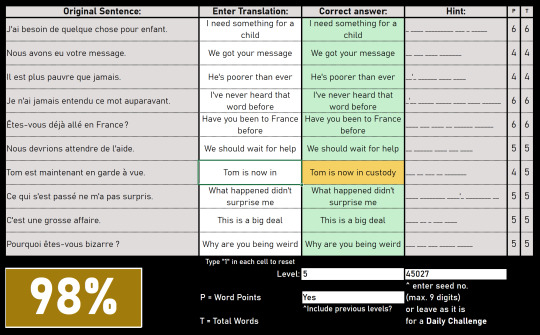
You can now learn languages with LangGuessr! Pick your level from 1 to 20, from the most common to the most obscure words, translate the words you know and memorise the ones you don't.
This is a learning method I developed to work best for myself, if it works for any of you then all the better!
List of languages currently available (more coming soon!):
- Bosnian
- Bulgarian
- Catalan
- Croatian
- Czech
- Dutch
- Esperanto
- Finnish
- French
- Galician
- Georgian
- German
- Greek
- Hebrew
- Hungarian
- Italian
- Kabyle (Berber)
- Latin
- Lithuanian
- Mandarin
- Polish
- Portuguese
- Romanian
- Russian
- Serbian
- Spanish
- Swedish
- Turkish
- Ukrainian
- Yiddish
#learn bosnian#learn bulgarian#learn catalan#learn croatian#learn czech#learn finnish#learn galician#learn georgian#learn greek#learn hebrew#learn hungarian#learn kabyle#learn lithuanian#learn polish#learn romanian#learn russian#learn serbian#learn swedish#learn ukrainian#learn yiddish
89 notes
·
View notes
Note
Any recommendations for a person trying to learn Greek?
Yes, definitely! I also wrote a post on learning Modern Greek online.
I am not sure what your native language is or if you know any other languages. I studied German before Greek, and so I found Greek grammar very easy in comparison.
To start with, it's slightly more complex than Spanish for English native speakers since it uses a case system (changing noun, adjective, and article endings). But I found the patterns fairly regular and easy to remember! So it is not stressful at all. And since many words are similar between English and Greek, you will find it easy to pick up vocabulary.
For learning, this was what I did:
A1/A2
Timeframe: 9-12 Months, Depending on how fast you go
Tools:
Duolingo: 5-6 lessons/1 crown a day, or 30 minutes
Rosetta Stone: 3 lessons a day, or 30 minutes
Language Transfer Greek: 1-2 lessons a day, 10-20 minutes
LingQ: Free reading, when chilling out
When you finish Duolingo and Rosetta Stone materials, watch Eisai To Tairi Mou on Youtube. The wonderful George has subbed the whole series in English.
For textbooks, I used Take Off In Greek. I did 1 lesson a week after completing Duolingo/Rosetta/etc. This takes about 3 months. There is an audio CD, which you may need to buy separately. I'm not sure.
I also started tutoring while working on the textbook. I meet with Georgia on Italki, who is amazing.
B1/B2
I'm still working on this. 😉
Colloquial Greek is a good textbook here. It's very fast, though. Lots of vocabulary. Routledge also has a Modern Greek Reader, which is advanced but quite good.
But if you want in-depth resources, look at "publications" from Omilo.
Lydia is a good review of A1/A2, all dialogues. They also have workbooks on verbs, Greek music, podcasts, etc. Their B1/B2 book is Fiyame, and it's all in Greek.
At this point, I would work through either Colloquial or Fiyame while working with a tutor 1-2x a month or more.
There is also a Greek Mastodon server - https://kafeneio.social/explore
I am not on this server, but I follow and interact with many people on it. I also use Greek as my default language. 😊
University of Athens
I want to point out that there is an affordable learning course from the University of Athens. It is an online course. They have multiple language courses, but they have a good deal.
Their basic level course is 150 EURO, but you can get it for less. If you buy one of their culture courses, many of which are 100/120 EURO, you can get the Greek course free. The culture courses are taught in English.
I hope this is all helpful! I find Modern Greek rather fun and easy to digest. So far, the grammar is not very difficult. And many of the A1/A2 resources are free or low-cost. Rosetta Stone can be bought for $167, I think, and be used for multiple languages.
107 notes
·
View notes
Note
Halloo ! different anon here, regarding the question about Greek literature.
I haven't read much either but honestly u can get a Greek school book and it's a grEAt starter. At least a big help for finding out soooo many authors and their best works.
λογοτεχνία γ γυμνασίου is all u need to Google and u can find the ebook. I'm not an expert but i know u can find gems in there! I don't think there is a translation but u can Google the titles and you'll find them translated individually.
The books of high school (λύκειο) are most possibly amazing sources of literature too but idk about those.
That's a great idea if first Anon intends to read in Greek. Modern literature schoolbooks include a variety of poems, short stories or excerpts from novels that can lead you to further reading.
You can download the pdfs in ebooks.edu.gr. I am giving you the links of the pdfs directly below.
Elementary School:
First & Second Grade (Very useful if you are a beginner in Greek!)
Third & Fourth Grade
Fifth & Sixth Grade
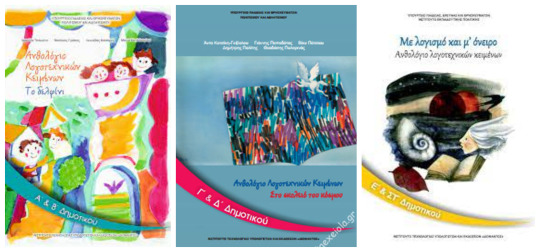
Middle School:
First Grade
Second Grade
Third Grade
All Grades - History of Modern Greek Literature (New book, we didn’t have such a book when I was in school! It is taught in a complementary way to the other three courses)
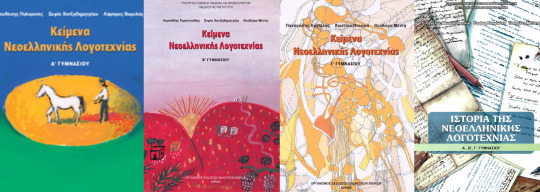
High School:
First Grade
Second Grade
Third Grade
All Grades - Essays (Not Literature) <--- I still have this one, I intend to read it.

Now that I saw all them (the website also has beautiful html interactive versions) I kinda want to read them all. I wasn’t reading them more than I was obligated to as a student but now I want to...
This was such a brilliant idea Anon! Thanks a ton! People learning Greek can find this super useful for practice and entirely for free! ❤️
#greek#learn greek#languages#linguistics#langblr#greek language#poetry#literature#anon#mail#greek culture
68 notes
·
View notes
Text
My mum's side of the family: Learn Greek so you can talk to us!
My high school Spanish teacher: You scored really high on the test, I hope you continue to take this class.
My high school French teacher: You're good at French, you should keep studying it.
Personal interests: You should study Japanese so you can learn more about me!
Me, nervously sweating, staring at my Duolingo realizing I might have to learn 4 languages.
#polyglot#languages#linguistics#language memes#i do genuinely want to learn these languages though#before anyone gets concerned about me succumbing to peer pressure and suffering for it#may as well study linguistics at this point tho if I gotta know so many languages#language#multilingual#bilingual#learning languages#prioritise french and spanish for now because they're part of school#then after I do those#learn Greek#then Japanese#that's the plan for now
5 notes
·
View notes
Text
Present Tense Conjugation of Regular Verbs (+ To Be) in Modern Greek

Hi! This is just a quick post going over the present tense conjugation of verbs in Modern Greek that have a regular form. These verbs are very to conjugate once you learn their endings. I am also adding the verb ‘to be’ to this post because it is a vital verb to learn, even if the ending isn’t regular. It is interesting to learn that the verb to be does not have the same endings as the other irregular verbs that I’ll be trying to make posts about soon.
Conjugation of Regular Verbs in the Present Tense:
Εγώ __ω
Εσύ __εις
Αυτός/Αυτή/Αυτό __ει
Εμείς __ουμε
Εσείσ __ετε
Αυτοί/Αυτές/Αυτά __ουν
In Greek verbs have a stem onto which you can add endings to change the person or people which the statement relates to.
For exemple:
The verb ‘to read’ in the present has the stem διαβάζ_. This means that with the endings from earlier it can be conjugated like this:
Εγώ διαβάζω --- I read
Εσύ διαβάζεις --- you read
Αυτός/Αυτή/Αυτό διαβαζει --- he/she/they/it read
Εμείς διαβάζουμε --- we read
Εσείς διαβάζετε --- you read (plural)
Αυτοί/Αυτές/Αυτά διαβάζουν --- they read (plural)
For regular verbs in the present tense you will notice that the tonic accent is never on the endings. This always the case for regular verbs, however for irregular verbs in the present, they may have the accent on the ending vowel.
It should also be noted that the use of pronouns when talking is not strictly necessary. Just like in Spanish, because of the specific verb endings pronouns are somewhat obsolete. Instead they are more used to mark insistence on who is doing the action.
A lot of verbs a regular in the present. A few of these are to see (Βλέπω), to want (Θέλω) , to have (Έχω), to know (Ξέρω), to go (Πηγαίνω) and to do (Κάνω).
Conjugating the verb ‘to be’:
Εγώ είμαι --- i am
Εσύ είσαι --- you are
Αυτός/Αυτή/Αυτό είναι --- he/she/they/it is
Εμείς ��ίμαστε --- we are
Εσείς είστε/είσαστε --- you are (plural)
Αυτοί/Αυτές/Αυτά είναι --- they are (plural)
The first thing you might notice is that the third person singular and plural are the same. This simply a funny quirk of the verb to be.
You might also notice that the second person plural conjugation of the verb to be has two options. This is because there are actually two ways of saying it, είστε and είσαστε. The second one was considered to not be grammatically correct when writing for a long time, therefore it was mostly used orally. However it became mostly accepted as grammatically correct in modern times and therefore the usage of both of them is interchangeable.
#greek#modern greek#langblr#greek langblr#modern greek langblr#modern greek grammar#my post#my posts#ελληνικά#learn greek#learn modern greek
33 notes
·
View notes
Link
Found this wonderful Ancient Greek textbook!
11 notes
·
View notes
Text
Learn Greek with Real-World Examples
Learning Greek is challenging. Greek to Me offers an easy and resourceful platform to let you gain mastery of this language. You can join the Greek to Me online learning Greek course through an app or textbook. We practice learning on the mnemonic approach and provide rich resources in the form of instruction videos, a detailed Biblical Greek dictionary, vocabulary support, and more. Join now to start your learning today!
5 notes
·
View notes
Text
more modern viewers rly needs to learn the thousands years old tradition of "hes a cunt and a menace but i want to see what he does next"
#mine*#yeah this post is abt lestat HOWEVER#im learning abt classical greek epics rn. hes not special/
35K notes
·
View notes
Text
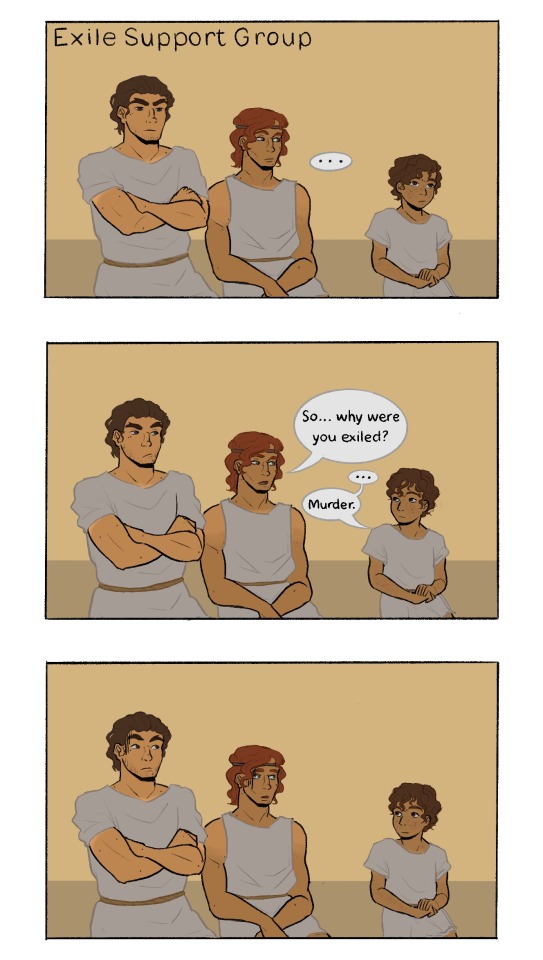
#agamemnon#menelaus#patroclus#digital art#I learned that Agamemnon and Menalaus was exiled and thought this was funny#The funniest part about this is Peleus seeing this and being like yesss#What a good influence for my son#It was weird to try and draw young Agamemnon or Menelaus without a beard#greek mythology#classics#ancient greece#the illiad#greek myth art
743 notes
·
View notes
Text
🇮🇹 Italian words 🤝 Greek words 🇬🇷
81 notes
·
View notes
Text
Right after Ruthlessness.

#Sorry I need to make another one! XD#And I just learned that Pelops were long gone when the illiad/odyssey took place!! 😭#epic the musical#greek mythology#poseidon#pelops#epic the ocean saga#horse!poseidon
420 notes
·
View notes
Text
For anyone looking to improve their Greek or Greek cultural studies, the University of Athens has many online courses in English by local professors.
Tagging @gemsofgreece and @alatismeni-theitsa in case your non-Greek followers are interested.
69 notes
·
View notes
Text
No one
Hsr ships:

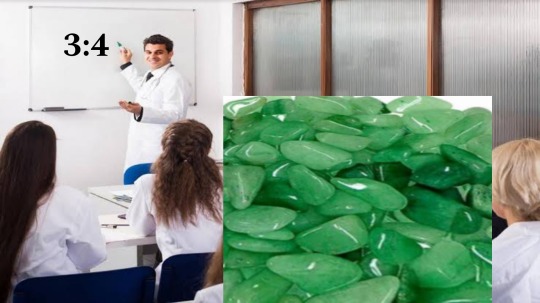

#today i learning acheron is the name of an underworld river in greek myth#honkai star rail#hsr#acheswan#acherswan#acheron#black swan#aventurine#dr ratio#aventio#firefly#hsr firefly#firefly hsr#trailblazer#stelle#caelus#hsr stelle#hsr caelus#stellefly#caefly#meme#shitpost#probably inspired by something similar i saw a while back with aventio#idk if i got the idea from that or not but mentioning it in case i did
470 notes
·
View notes
Text
Pronouns and Regular Present Verbs in Greek

Hi! This is just a quick introductory post to subject pronouns and the neutral case in Modern Greek. They’re pretty straight forward, hope you enjoy! Give me any feedback and feel free to point out any mistakes if there are any.
The Subject Pronouns:
Εγώ --- I
Εσύ --- You
Αυτός/ Αυτή/ Αυτό --- He/ She/ It
Εμείς --- We
Εσείς --- You (plural)
Αυτοί/ Αυτές/ Αυτά --- They (plural)
You might notice that there are few more pronouns compared to what you might be used to in English. This is because of the presence of a third gender case in Greek. The neuter or neutral case (ουδέτερο) functions the same as the masculin (αρσενικό) or feminine (θηλυκό). It is similar to the neuter case in the German language. For Αυτό, the closest translation I could think for it was the pronoun ‘it’.
For the third person plural you might notice that there are three pronouns used for the different cases just like the singular third person pronouns. This is simply because unlike in English the third person plural differentiates between if the subjects are men, women, objects or other depending on the gender of the word.
For exemple, Αυτά could be used to replace the word ‘the books’ (τα βιβλία). This is because the word for book in Greek is neutral.
The books are ______ -------> They are _______
Τα βιβλία είναι ______ --------> Αυτά είναι ______
The same principle applies to the other genders, I simply used the neutral case here to better highlight how the neutral case might be used.
#greek#modern greek#language#language learning#languages#Learn Greek#learning greek#learn modern greek#langblr#greek langblr#modern greek langblr#ελληνικά#my posts#my post#greek grammar#modern greek grammar
30 notes
·
View notes
Text
ancient greek words for colors:
On the whole, the Greeks were not really concerned with giving names to specific colors. Their color terms were vague, often had more to do with shade than color difference, and drew in a sort of dynamic physicality that is honestly incredibly interesting.
μέλας and λευκός, which were commonly used to refer to black and white respectively, were still more involved with shade than the particular colors that we perceive as black and white. μέλας also meant dark, murky, and swarthy. λευκός was light, bright and clear, referred to any white color from a pure white to a light grey, and could also refer to someone with lighter skin.
χλωρός meant pale green or greenish yellow, but also commonly meant pale or pallid when referring to people and fresh or blooming when referring to plants and liquids (including blood and tears).
πορφύρεος is where we get the color term purple. And when it was referring to clothes or things, it did mean purple. But when it was describing people, especially their complexions, it meant bright red or flushed. This definition originates from the basic meaning of the word: heaving, surging, gushing, coming from the verb πορφύρω.
ξανθός and ἐρυθρός are perhaps the only straightforward terms, meaning yellow or golden and red respectively. ξανθός was typically used to describe blonde (ish) people; Achilles is described as having ξανθή κόμη (golden hair).
γλαυκός was commonly used to refer to the color grey, or simply to describe something as gleaming. When it refers to eyes, it usually describes the color; the most famous example being Athena and her epithet of γλαυκῶπις or grey-eyed (or gleaming eyed).
And now let's talk about κυάνεος. We get the color term cyan from it, and the word is popularly considered to refer to a dark blue. But that isn't exactly accurate. If we look at what this word typically described: hair, people, etc., it is clear that the concept of blue that we have nowadays wasn’t really coming into play. In fact, the more general translation is dark or black, conveying a shade rather than a color, like μέλας. If I were to attribute a color term to this word at all, I would probably say blue-black, or a cool black, to convey the depth of that shade, which is probably what the Greeks were describing.
#ancient greek#vocab#vocabulary#language learning#greek language#greek vocab#classical literature#classics#colors#words for colors#how to describe colors#dys blurbs#i had to make my own list because every other one i've seen has colors that aren't referred to by texts with as much frequency#achilles#athena#the iliad#the odyssey
526 notes
·
View notes